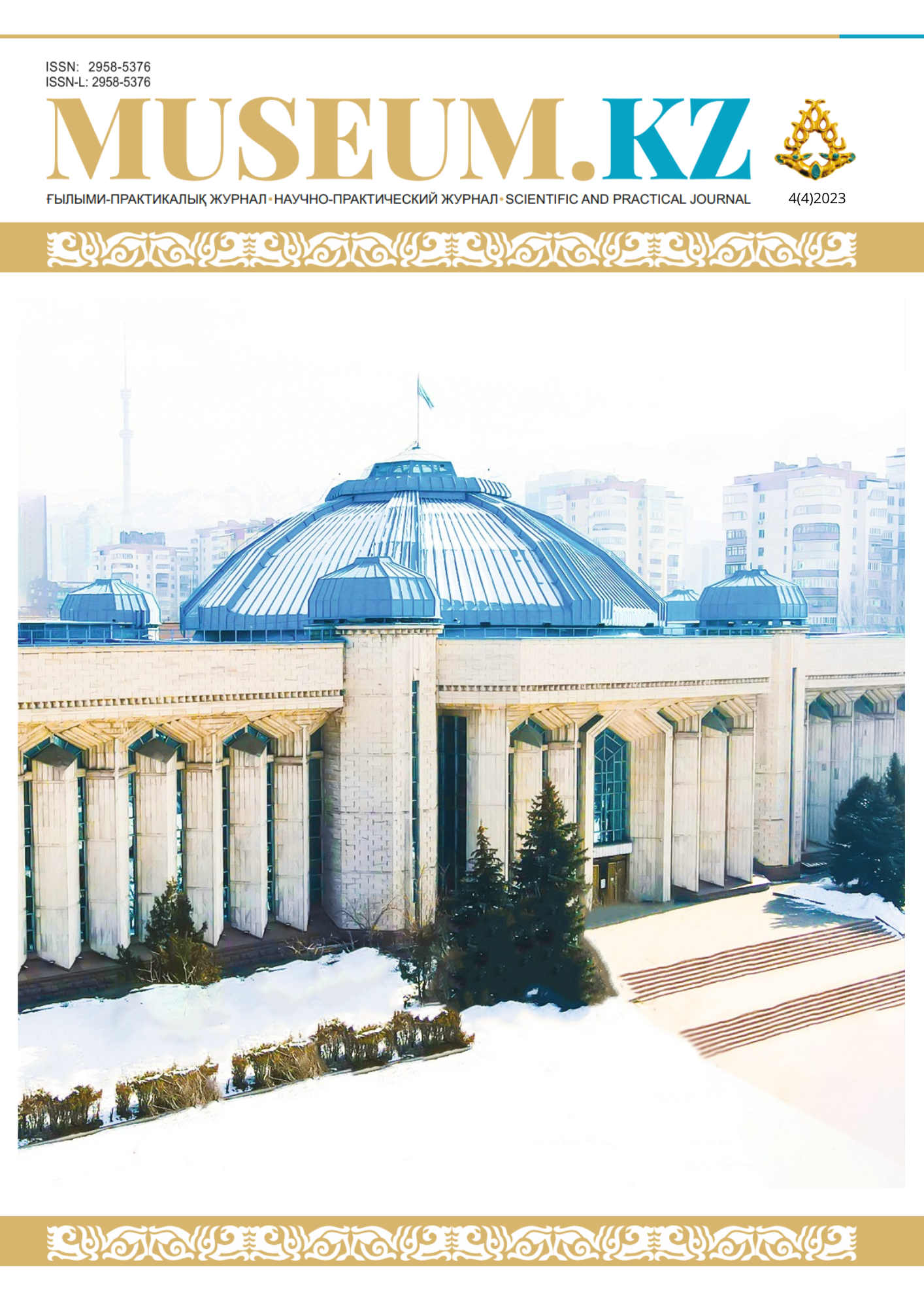MOBILE MUSEUM AS AN OPPORTUNITY TO DIGITALIZE THE HISTORICAL AND CULTURAL HERITAGE OF KAZAKHS
DOI:
https://doi.org/10.59103/muzkz.2023.04.10Keywords:
museum, mobility, digitalization, Kazakhs, cultural heritage, reconstructionAbstract
History is a science that studies the past of human society. The history of the desire to study the past in order to benefit from the experience of previous peoples in the present time. Enlightenment is a mirror of the well-being of the people. It stood stands and will stand at the origins of the national, socio-economic and spiritual development of each state. Therefore, new components, in particular the creation of a national museum, make it possible to update the centuries-old heritage of our ancestors, who made it understandable and in demand in the conditions of digital civilization, and will help foster a sense of pride in our history and foster patriotism. Involvement in national history creates a sense of unity of one’s origins among all Kazakhstanis. The purpose of the study is to make historical facts on the history of the Kazakhs accessible to a wide range of the population and to provide an opportunity for people with disabilities, pensioners and other vulnerable citizens to earn money. The difference from an ordinary museum lies in its mobility, which consists in the use of modern technical and technologies such as multimedia, holograms, installations and 3D video mapping. The importance of digitalization in the process of perpetuation of objects of state protection has been determined. The problems of digitization in the country have been studied. The experience of digitalization of historical and cultural heritage is considered.
Materials and methods of research: In the process of writing the article, the works of the authors were used: Azizyan I.A., Dobritsyna I.A., Lebedeva G.S. «Theory of composition as poetics of architecture», Bogacheva G.G. «Ways of forming civil, ethnic and social identity of students by means of linguistic and local studies», Smirnov I., Titov V. «Philosophy»: Textbook for students of higher educational institutions, Hunahu R.A., Tsvetkov O.M. «Historical consciousness: the state and trends of development in the conditions of perestroika», Sharonov A. «On some aspects of social policy». The methodology of the study of this problem is based on an integrated approach. The research is based on logical and scientific methods, among which we highlight analysis and synthesis. The principle of consistency is used in the work. To achieve this, we set ourselves well-informed tasks: based on factual material, to show the process of selecting digital technologies for real or virtual reconstruction of monuments, to give specific examples of recreating lost cultural heritage sites, to characterize the effectiveness of this work. The research is based on historical-genetic and problem-chronological methods, an integrated approach through which the features of digitalization and integration of technical and humanitarian knowledge in modern conditions are considered, as well as research methods using multimedia tools.







